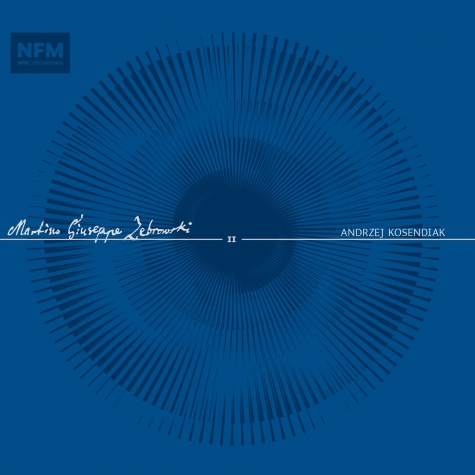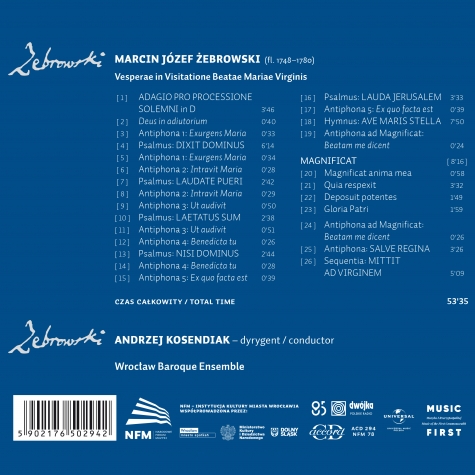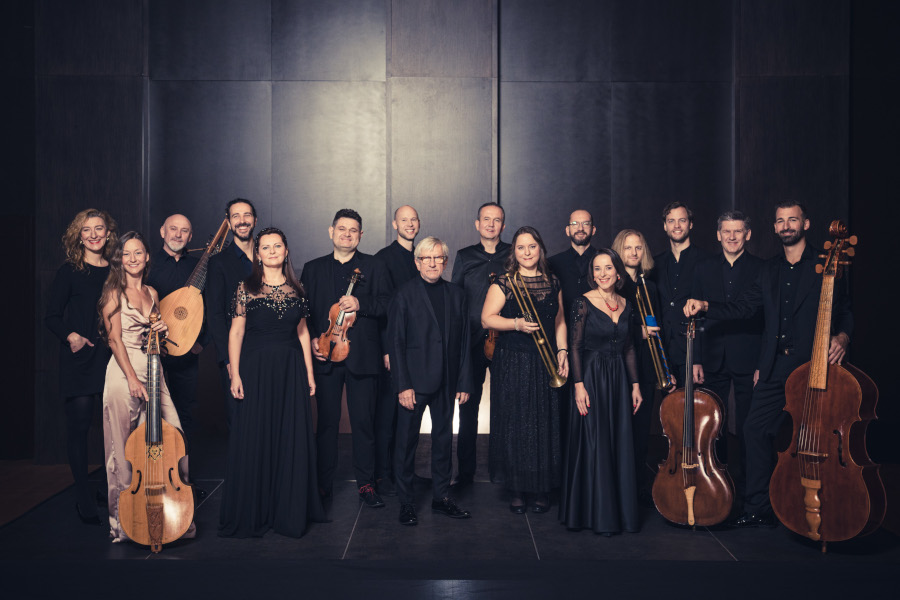Marcin Józef Żebrowski II
The eleventh album released as part of Music First. Music of the Polish-Lithuanian Commonwealth series prepared by the NFM and CD Accord and presenting the work of masters of the Polish Renaissance and Baroque under the direction of Andrzej Kosendiak. This is a monographic album recorded by Wrocław Baroque Ensemble, devoted to the work of Marcin Józef Żebrowski, who was one of the luminaries of Polish musical culture of the 18th century. The recording contains Żebrowski’s Marian Vespers, which was placed in the liturgical context through the use of chorale antiphons taken from 17th-century sources.
Album release date: 2022
Publishers: National Forum of Music, CD Accord
Performers:
Andrzej Kosendiak – conductor
Wrocław Baroque Ensemble
What you hold in your hands is the second album featuring the works of one of the most renowned representatives of Polish 18th-century music: Marcin Józef Żebrowski. We have reached again for the collections at Jasna Góra, which include vespers by this Polish composer. Referring to the tradition in which individual psalms included in the vespers were used for a given holiday, we selected an order that could be performed on the day commemorating the Visitation of the Blessed Virgin Mary (celebrated in the Catholic Church on May 31). Along with the psalms, we selected antiphons, a processional sonata, the Ave maris stella hymn, the Magnificat canticle and the Mittit ad Virginem sequence, laying them out in line with the liturgy of the hours.
This cycle begins with the instrumental Adagio pro processione solemni in D, followed by the vocal Deus in adiutorium that traditionally initiated vespers. I would like to emphasise in particular the tremendously difficult trumpet part in the hymn Ave maris stella, composed by Żebrowski for Wincenty Piński, a virtuoso of this instrument and one of the best-paid musicians in the ensemble of Jasna Góra at that time. Nowadays, we are convinced that we know everything already and that performance technique is at its highest. However, this hymn by Żebrowski teaches us to be humble and proves the incredible capabilities of 18th-century musicians. Personally, I have not come across a more difficult trumpet part in any era of musical literature. Also particularly interesting is the Mittit ad Virginem sequence written in Latin and in Polish, with music in the style of a polonaise. Curiously, among the liturgical works of Żebrowski the rhythm of the polonaise appears quite often – including, among others, in the Lauda Jerusalem psalm or in the words ‘Gloria Patri’ in the Magnificat. It seems that the composer wanted to underline the Polish nature of his works that way.
While working on this recording, we all have become certain that compositions by Żebrowski present the highest artistic level and we should popularise his music as widely as possible.
Andrzej Kosendiak










